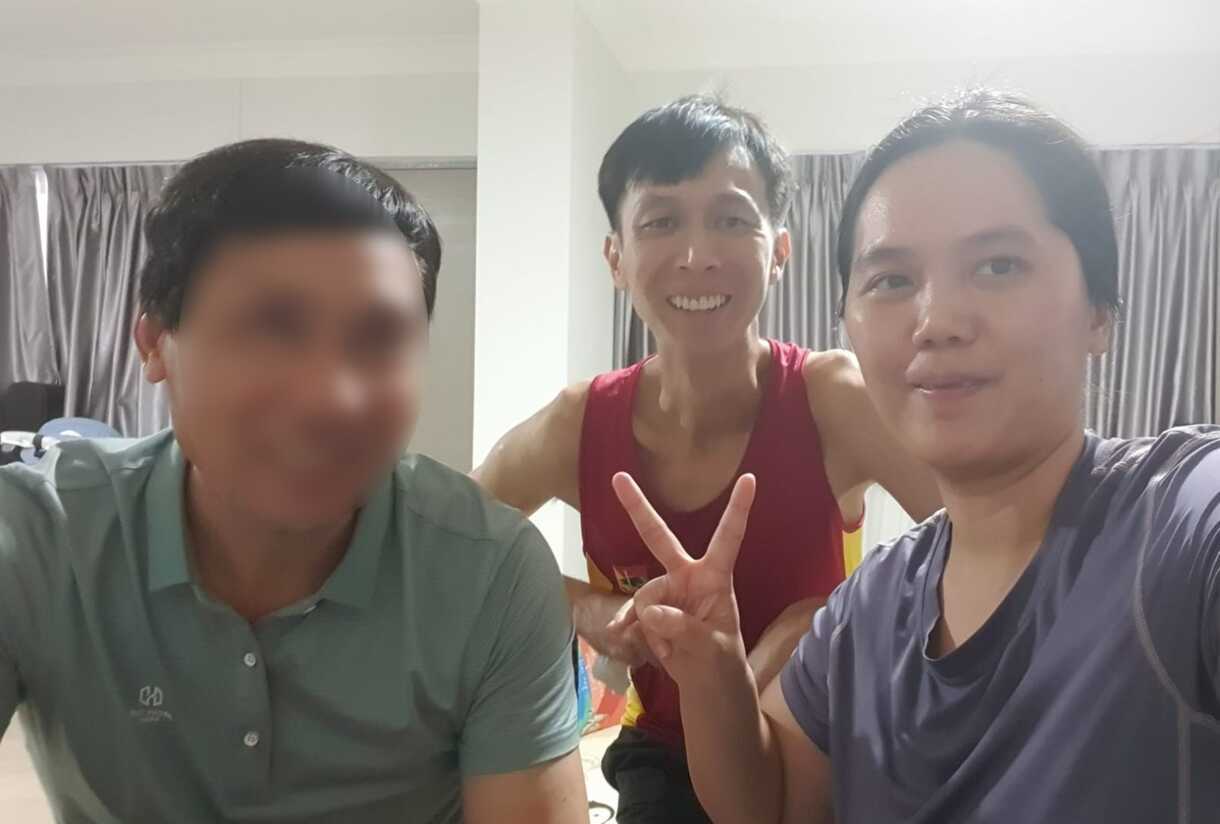What is life like for our HDB estate cleaners?
On International Migrants Day (December 18), Salt&Light recognises the hard work and sacrifice of migrant workers, and the impact they make in our lives.
by Gracia Lee // December 17, 2021, 1:19 am
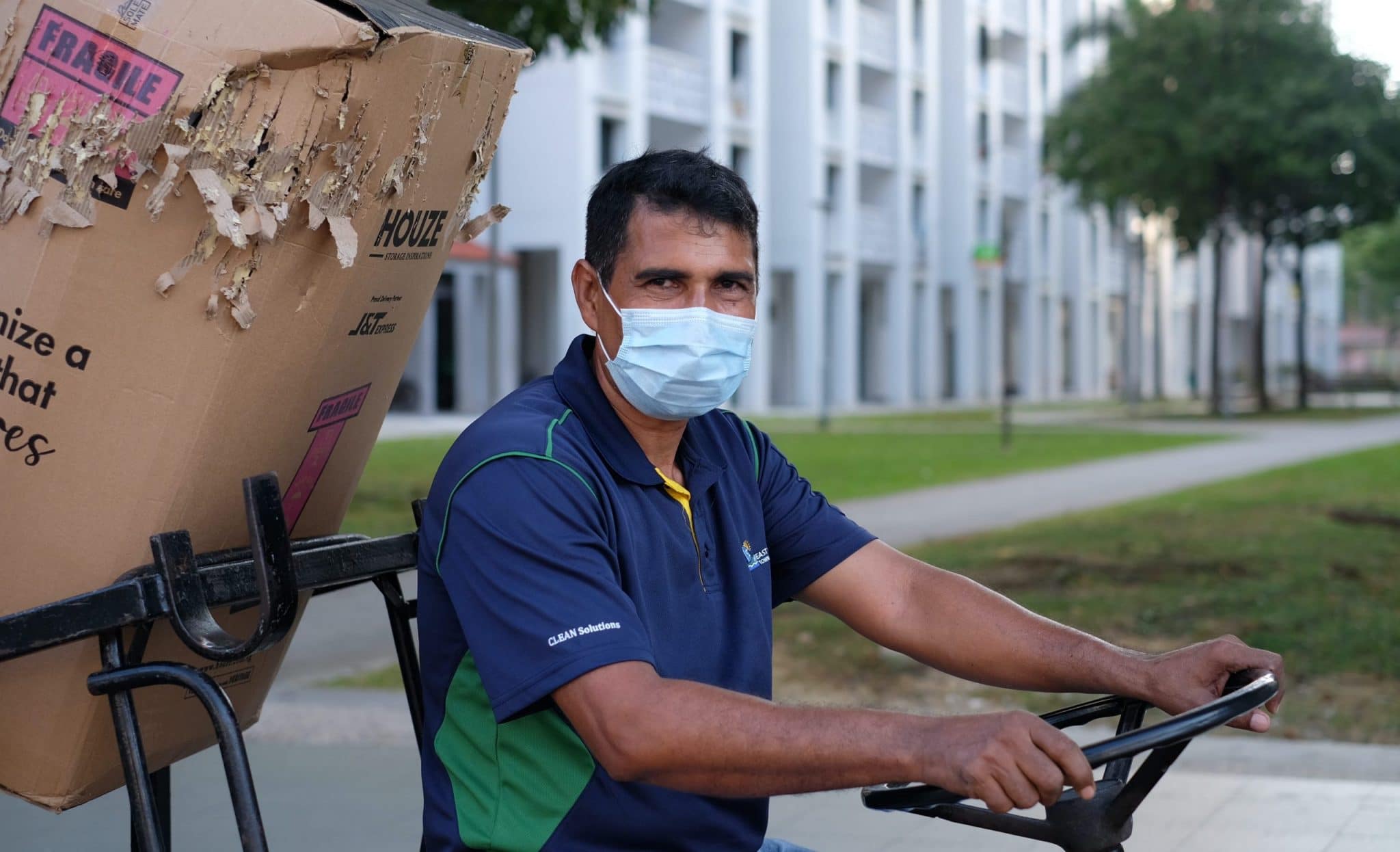
For 12 hours every day, Forhad Ali makes his way around a 16-block estate sweeping floors, clearing bulky items and responding to residents' requests for help. All photos by Tan Huey Ying.
We see them in our estates every day. We pass them along the road and on public transport. Some of them even live in our homes.
Yet, more often than not, we know so little about the migrant workers among us – who they are as individuals and the daily work that they do.
For International Migrants Day (December 18), two Salt&Light writers followed Forhad Ali, an estate cleaner from Bangladesh, as he went about his 12-hour shift, to befriend him and see what exactly goes into the work that helps to keep our homes clean.
From heaving whole fridges and sofas to cleaning up coffee spills and dog poop, Ali, like countless other workers, spends his days doing work that is so essential yet often overlooked by us.
As you look through this photo essay, we hope that it will help you to truly see the work that migrant workers in Singapore do, and encourage you to send a warm smile or a friendly “thank you” their way the next time you see them.
A day in the life of an estate cleaner
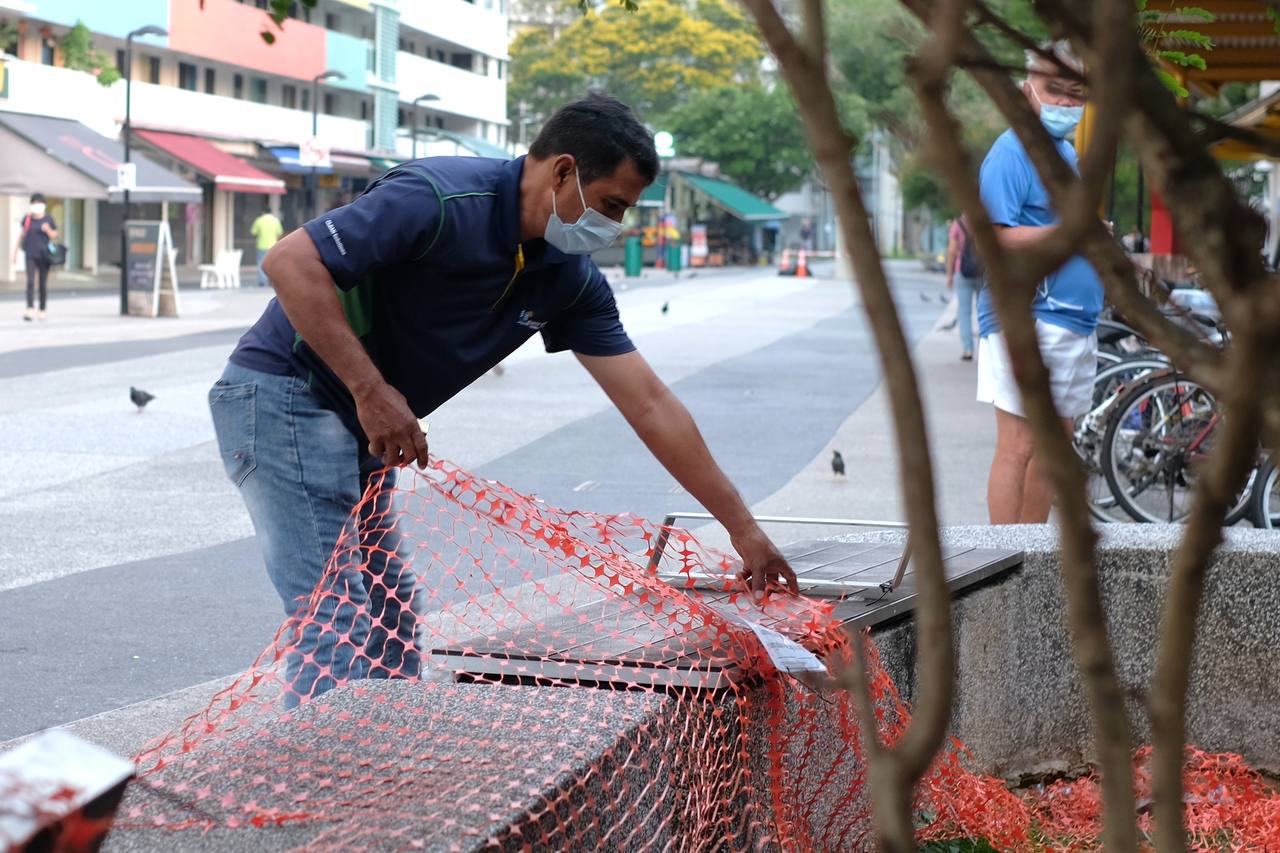
Every morning, Ali wakes up at 6.30am and cycles about 1.2km to work from his three-bedroom flat that he shares with a few of his colleagues, on an old bicycle given to him by a resident. Wearing a dark blue shirt – a mark of his seniority as a supervisor – jeans and grey sports shoes, he begins his work day at 6.50am at a market, where he checks that the entrance wardens are present and people are adhering to safe distancing rules.
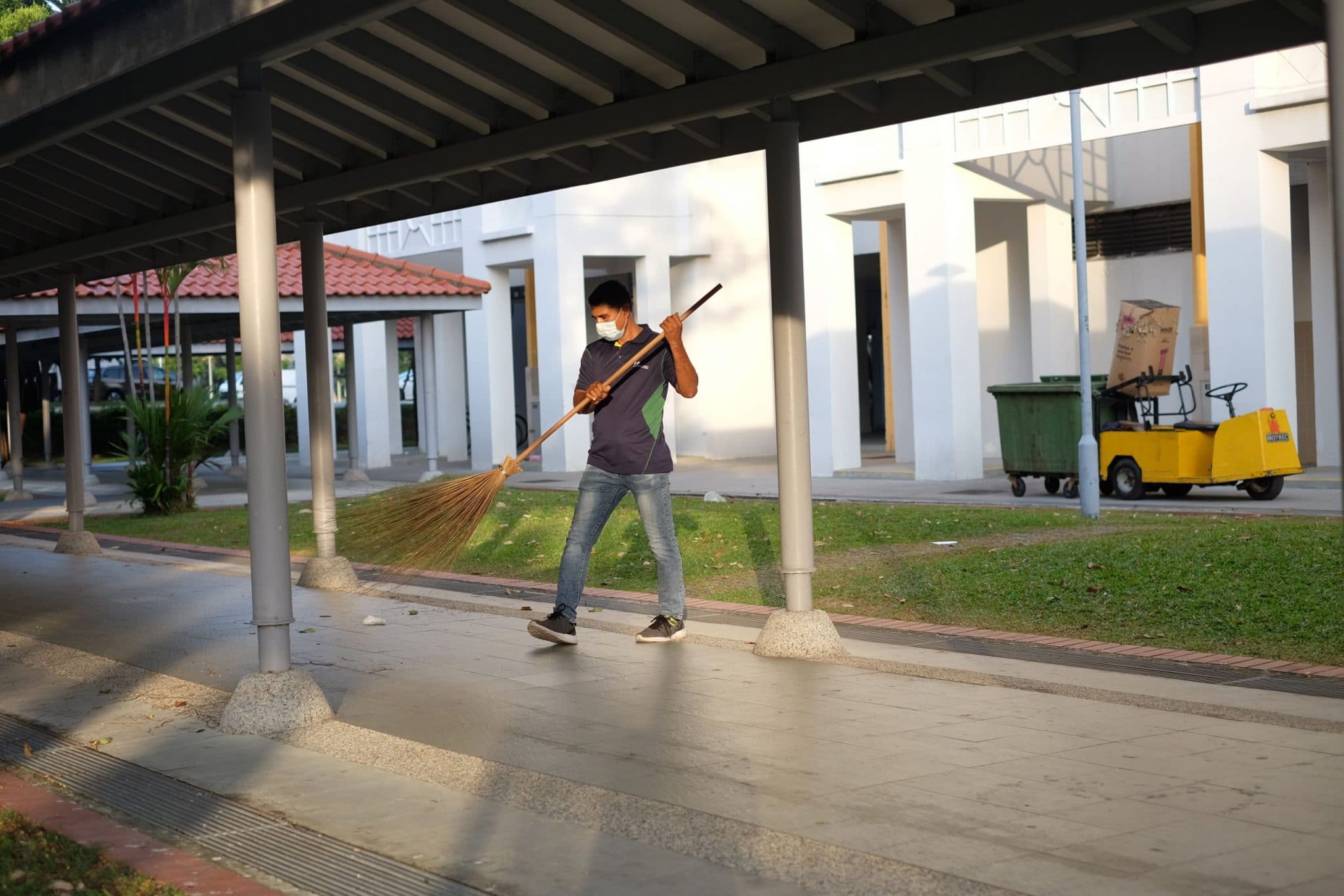
Heading to the nearby bin centre, which the estate cleaners call their “headquarters”, Ali hops onto a yellow rubbish cart and drives to one of the blocks that he is responsible for sweeping. As a supervisor, his main task is not to sweep, but he helps out in whatever way he can.
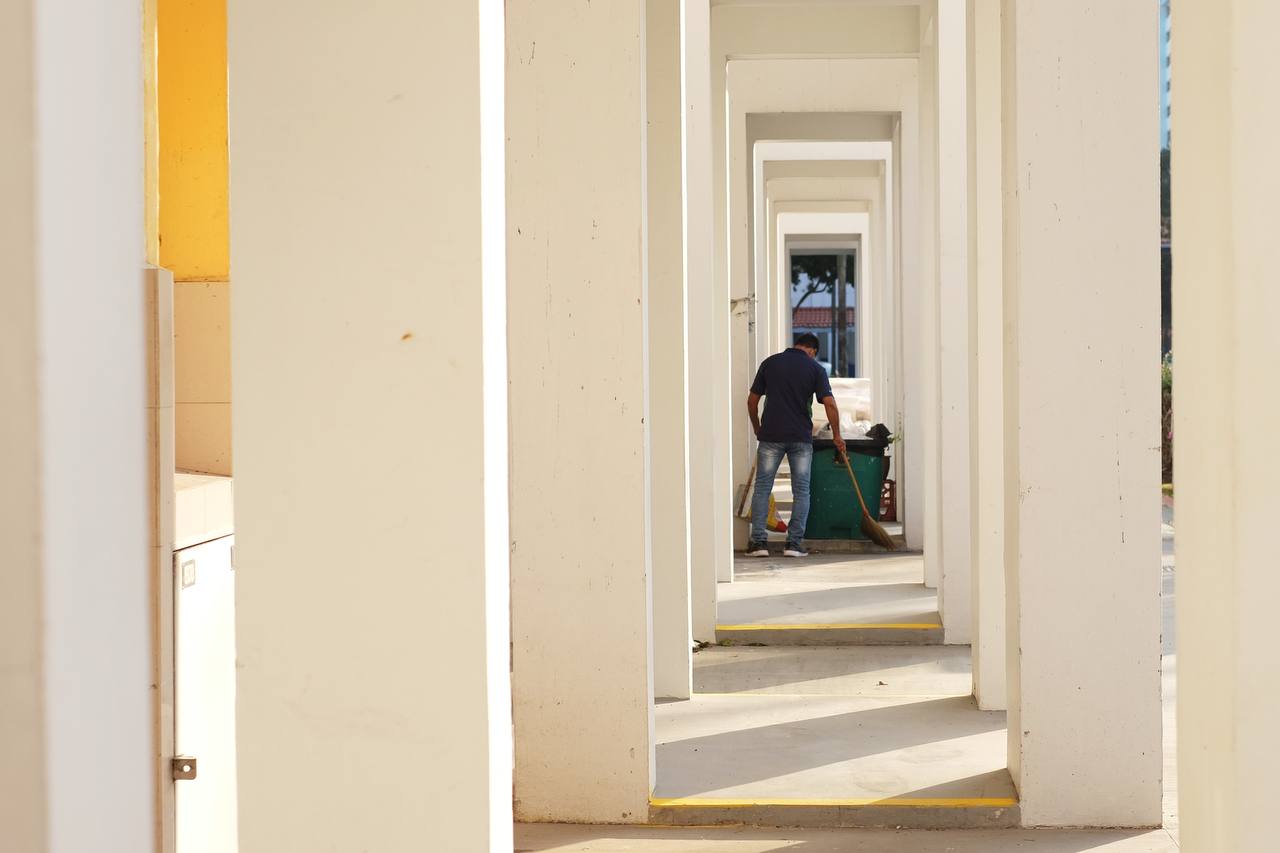
Making his way through the void deck, lift lobbies and nearby pathways, he spends the next hour sweeping up leaves, twigs and all sorts of litter like plastic bags, cigarette butts, Styrofoam boxes, used masks and tissue paper.
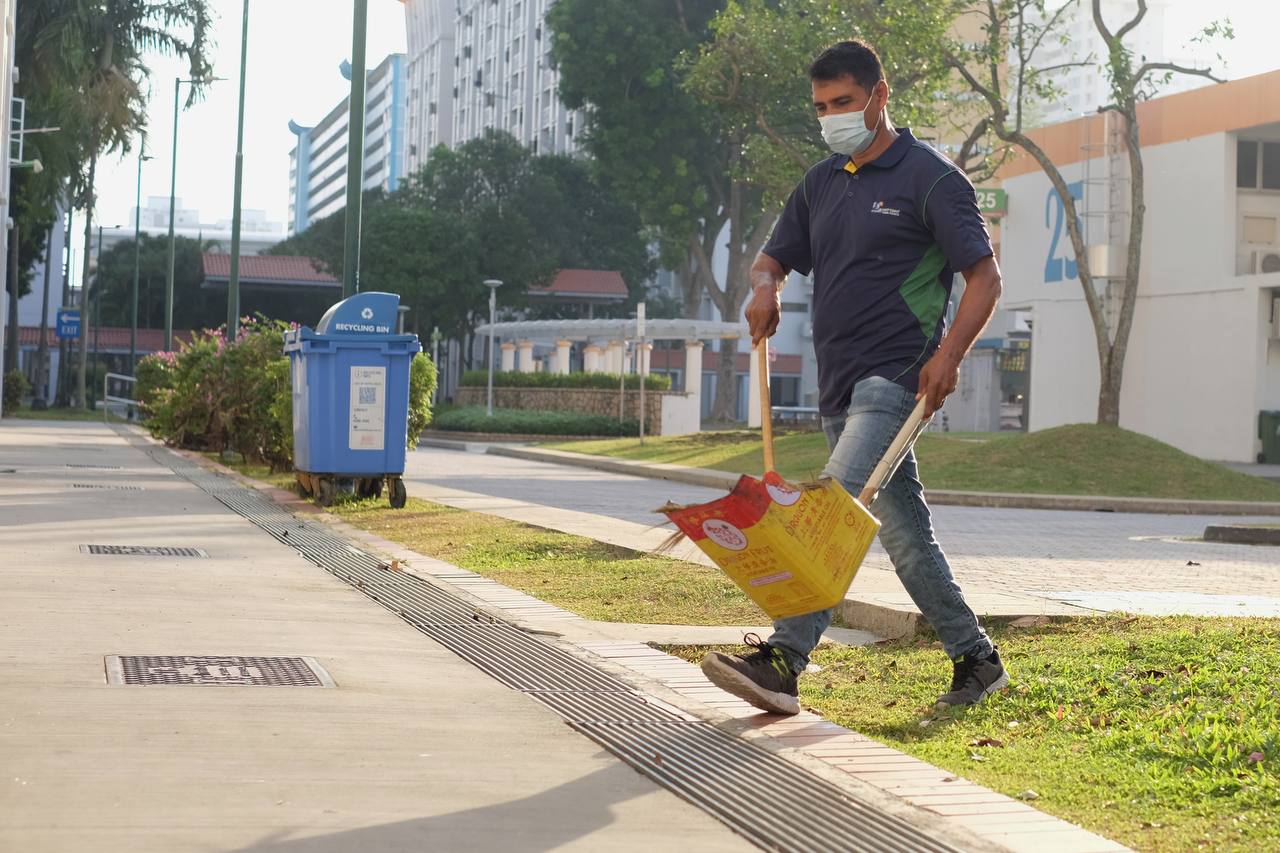
By early afternoon, spaces that had been cleaned earlier become dirty again as litter accumulates, and Ali receives requests to clean up certain areas. I ask him if he feels angry when residents throw litter inconsiderately. “If I see, I will approach them and advise them. But angry for what? No point angry. I just clean. It’s my job,” he says matter-of-factly.
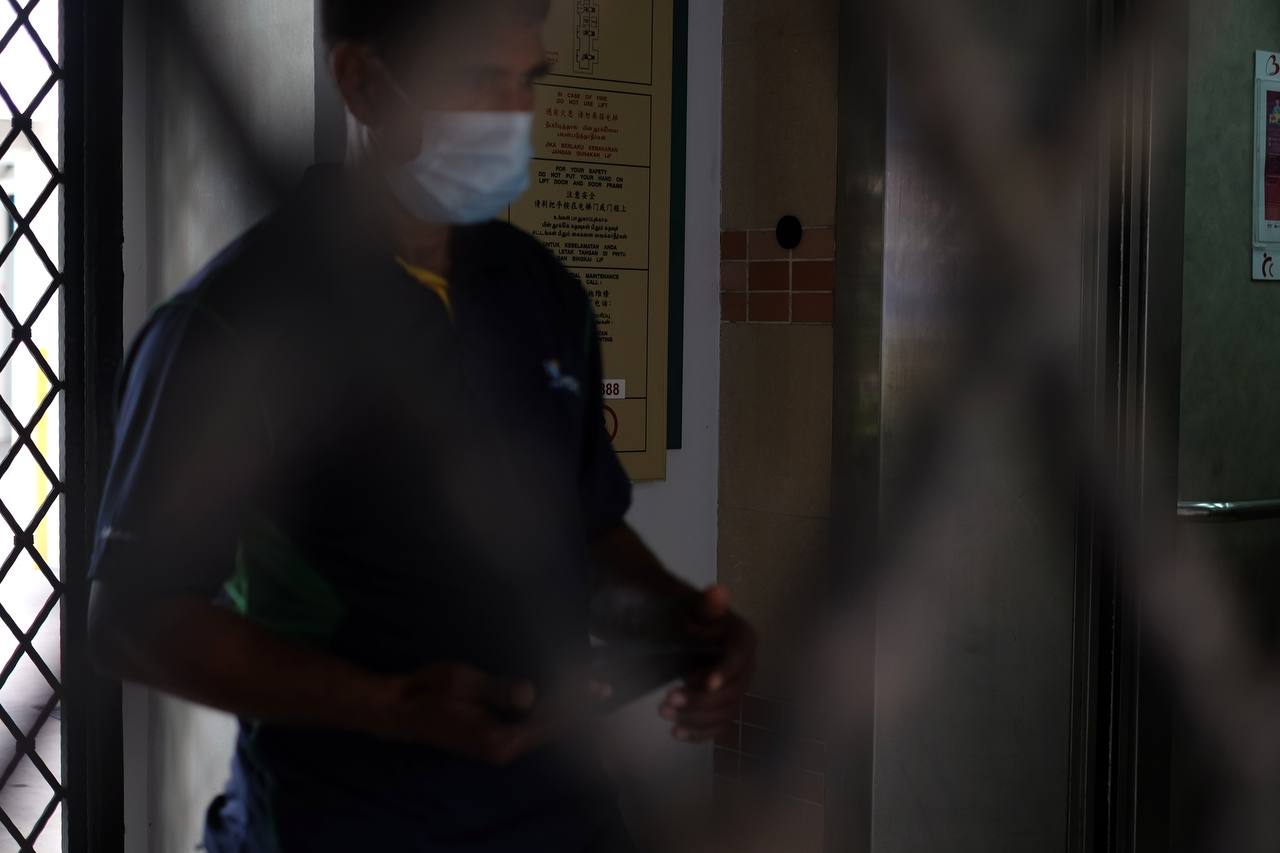
After emptying the rubbish bins and ensuring that the block is clean, he makes his way on foot to each of the 16 blocks he is in charge of, ensuring that his men have done a good job. To do so, he snaps multiple pictures of the floors and lifts, and uploads them onto an app. If something is not up to standard, he will inform his team on what needs to be improved.
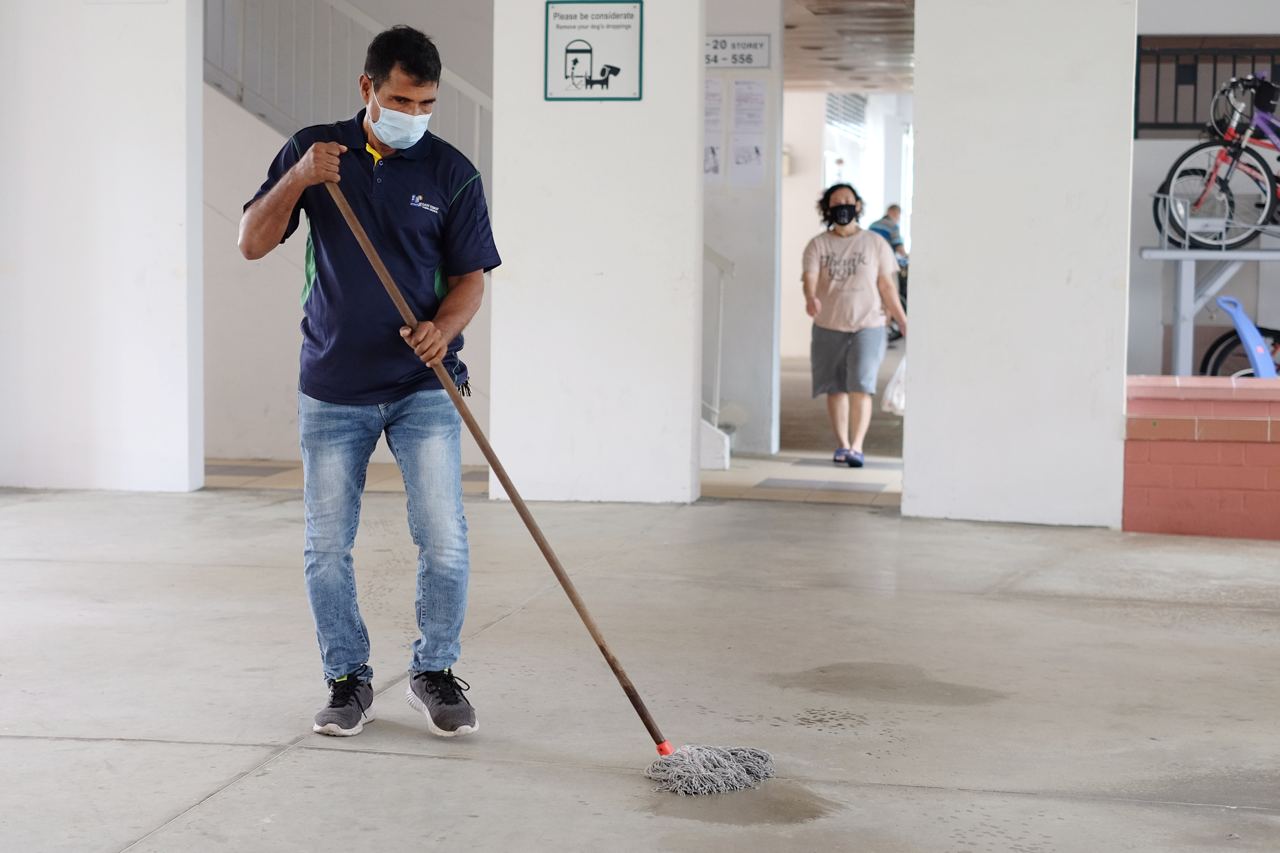
As he makes his rounds, he spots a pile of dog poop that had not been picked up. Noting that the cleaner in charge of this block is an elderly man, he kindly volunteers to sweep it up and mop up the area on his behalf. A resident passing by on a bicycle greets him cheerily by name, before commenting that this is not the first time dog poop has been left on the ground. “I wonder which dog!” she exclaims. Ali laughs good-naturedly.
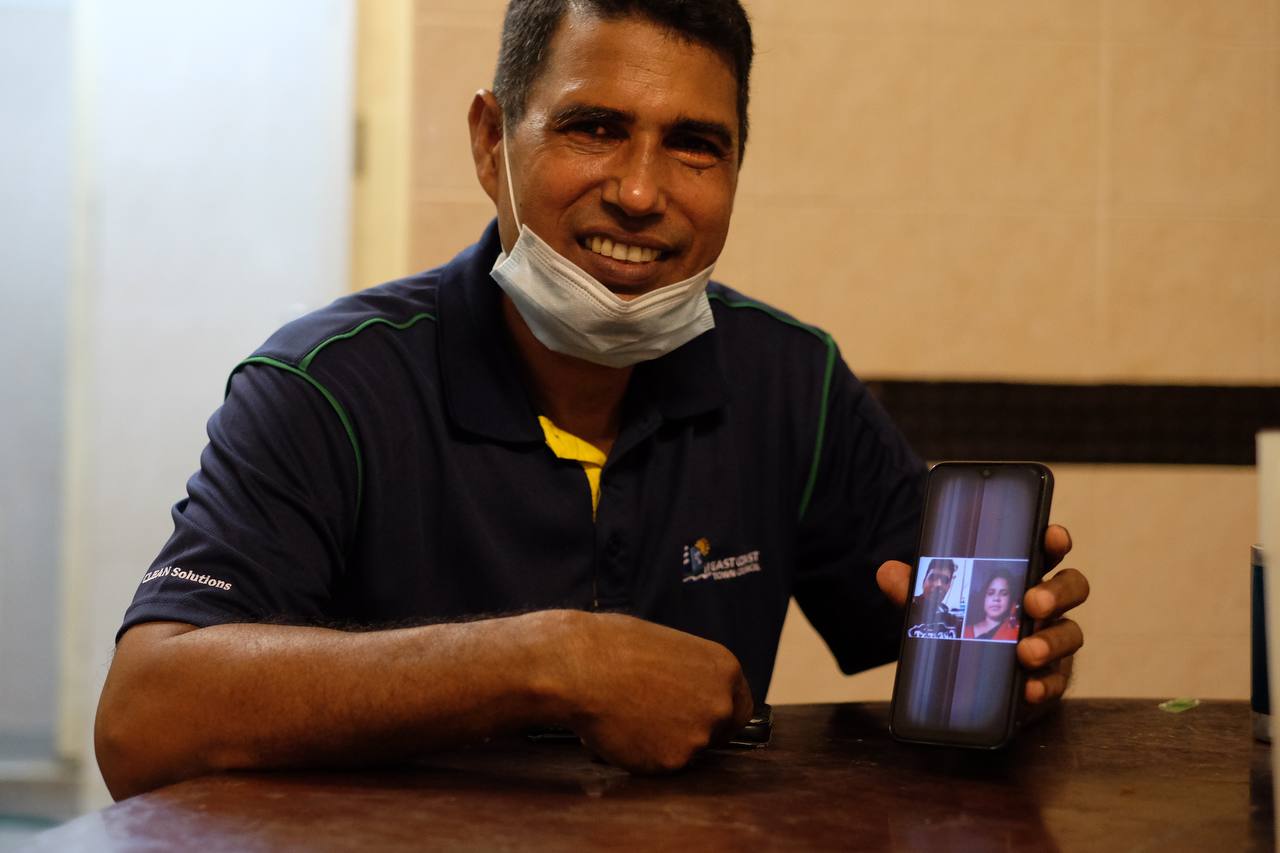
During his half-hour breakfast break in a nearby utility room, Ali shows me pictures of his wife and two teenage children back home in Tangail, Bangladesh, as he tucks into a plate of rice and dahl cooked by one of his colleagues. Ali says he has watched his kids grow up over video calls. When he first came to Singapore to work in 2007, his daughter was only eight months old. “Now, 15 already,” he says. “My son also. Last time four years old. Now, 18 years.”
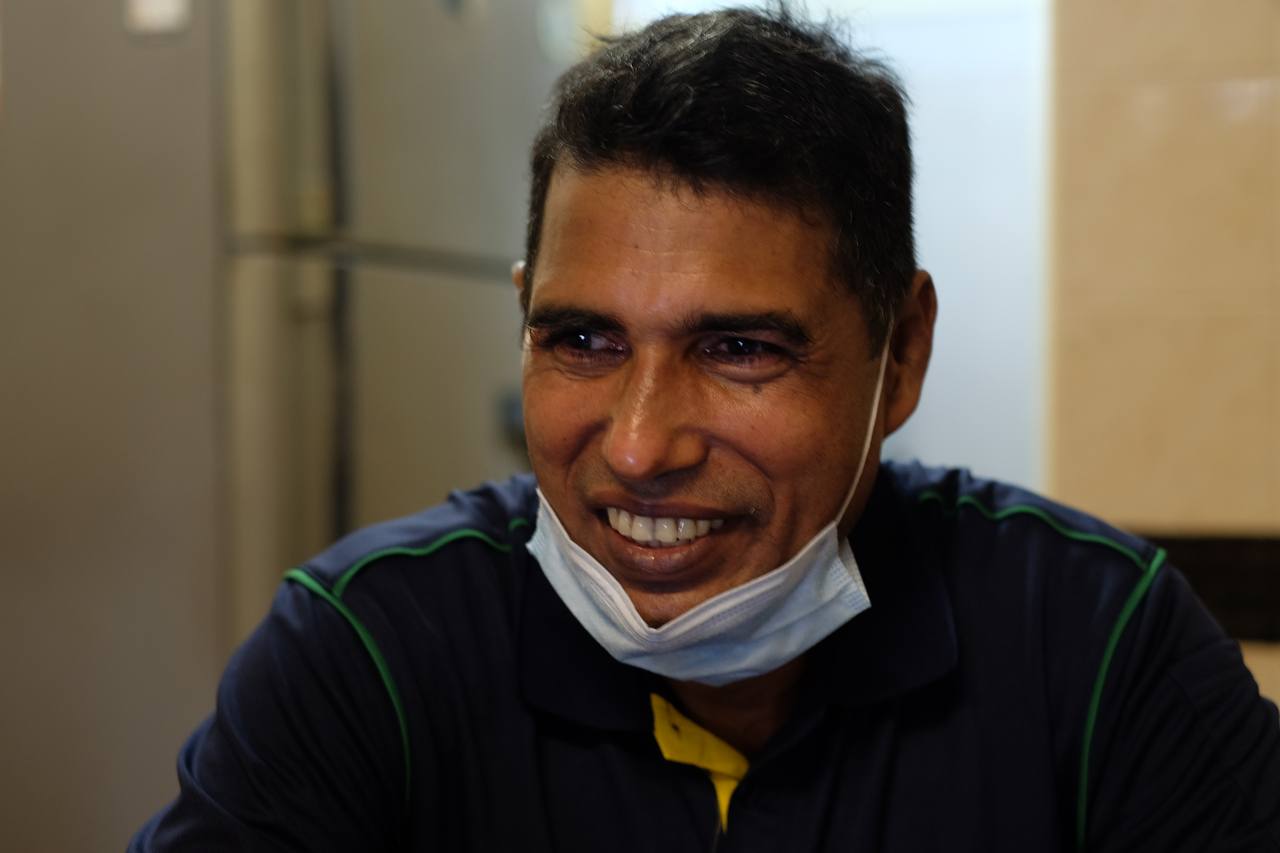
He used to go home once every two years for two to three weeks at a time. But due to the pandemic, he has not been home since December 2018. I ask if he feels lonely in Singapore. He doesn’t understand the meaning of the word. When I translate it into Bengali using Google Translate, he pauses for a few seconds. “Yeah,” he replies without elaborating. He is hoping to return to Bangladesh soon to set up a clothing business, so he can spend more time with his family.
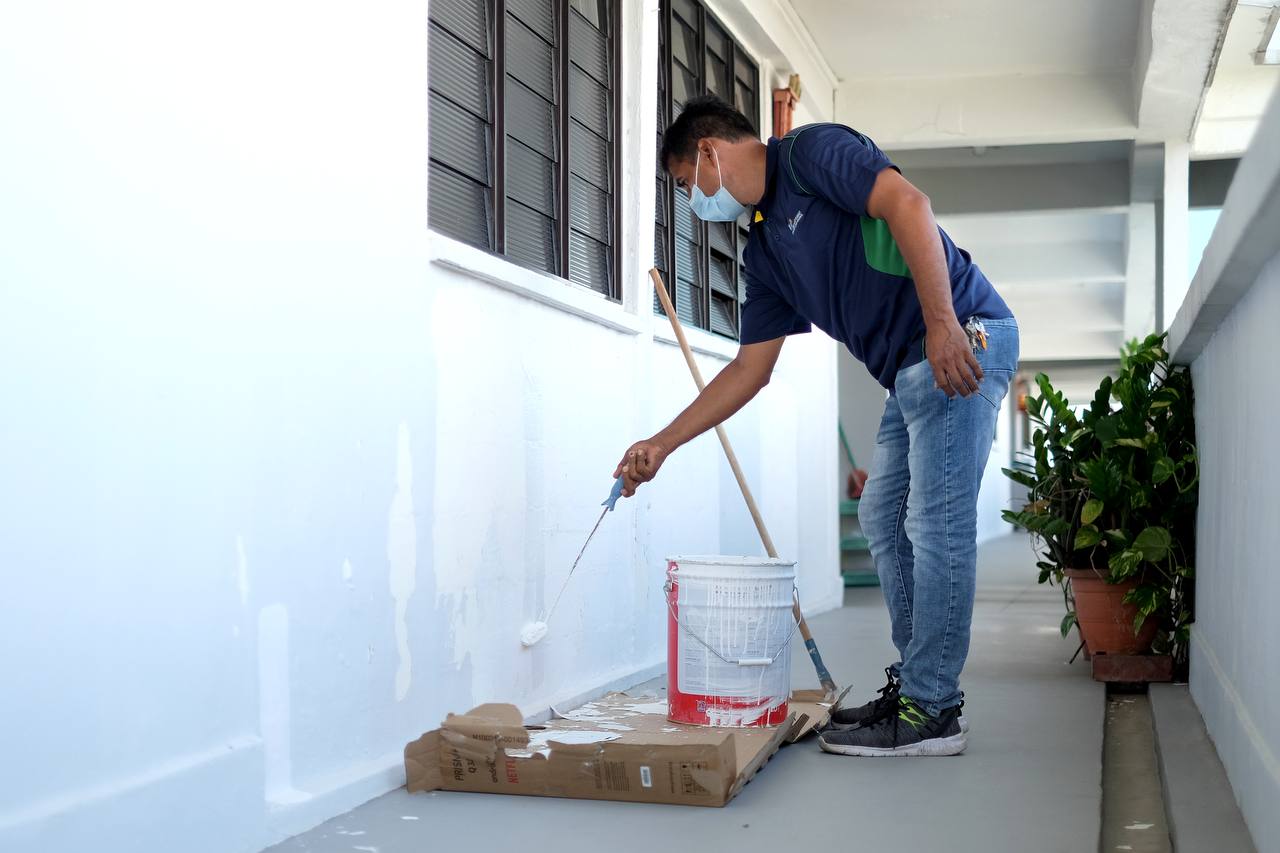
Throughout the day, Ali receives several requests for help from the residents, most of which are communicated to him through his managers on WhatsApp. Before lunch, he heads to patch up a chipped paint job outside someone’s home. During lunch, he receives a call that a communal tap has stopped working. En route to one of his tasks, he makes a detour to mop up a smear of faeces in a lift after a resident complained of a stench.
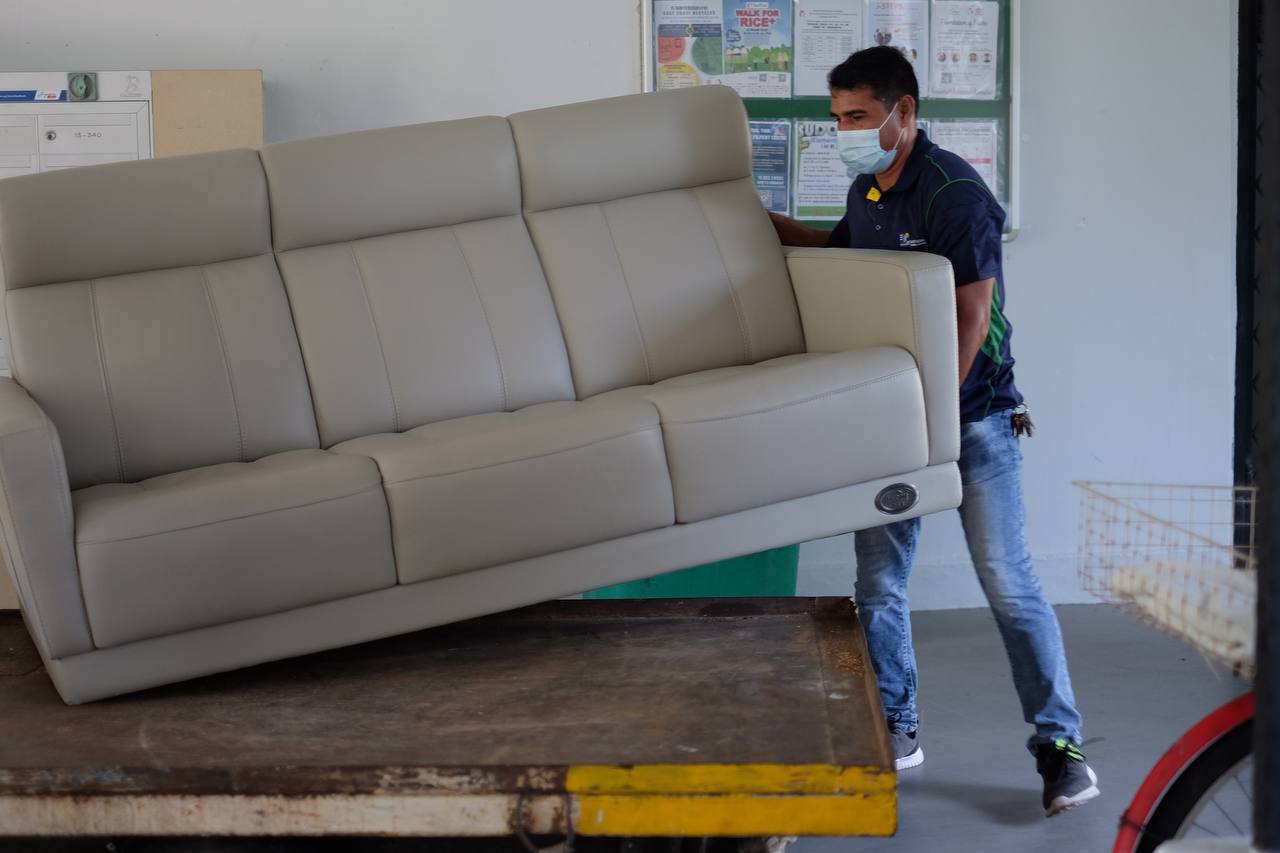
After lunch – two egg pratas and a can of 7-Up from a nearby coffee shop – Ali spends most of his afternoon moving bulky items from void decks to the bin centre.
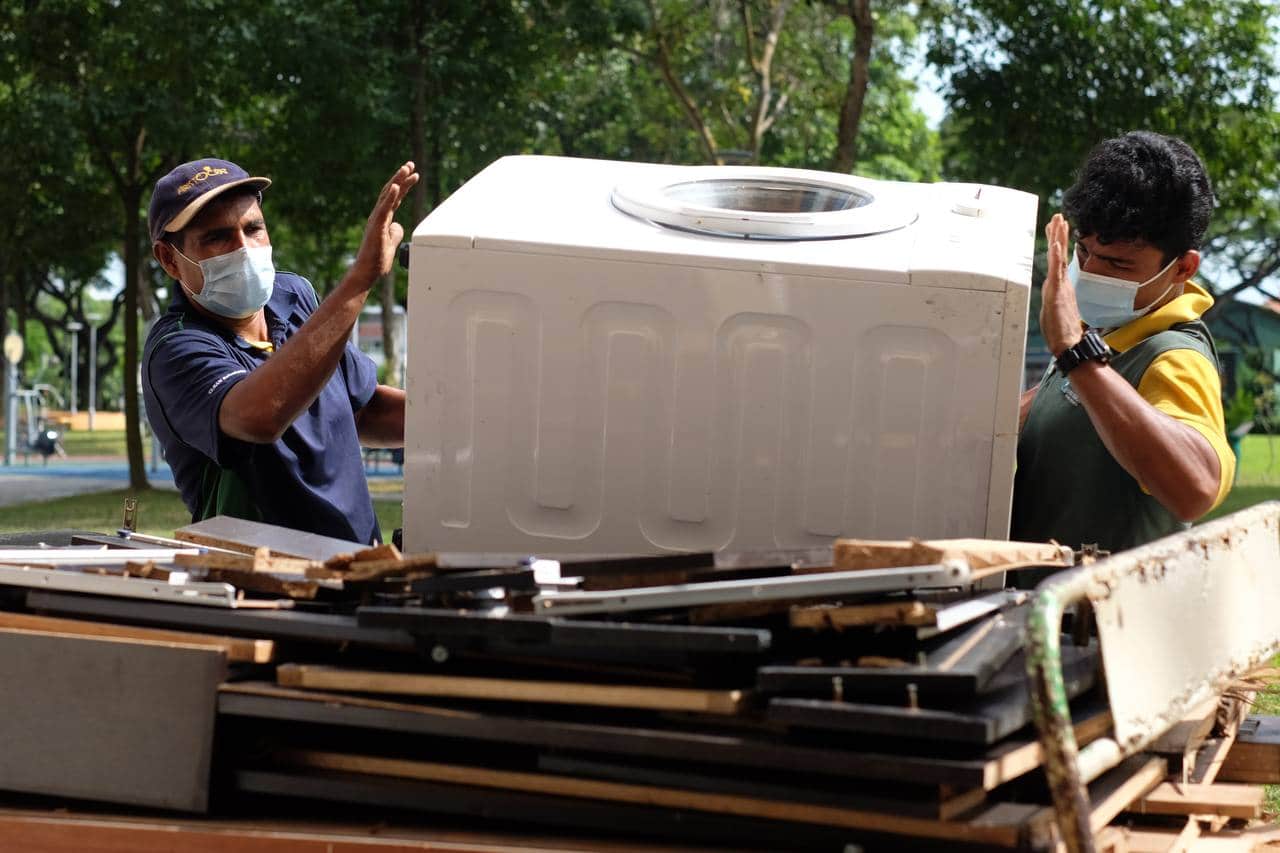
On the day Salt&Light followed Ali around, there were at least seven sofas, six fridges, a host of wooden shelves, mirrors, a washing machine and a toilet bowl that had to be cleared.
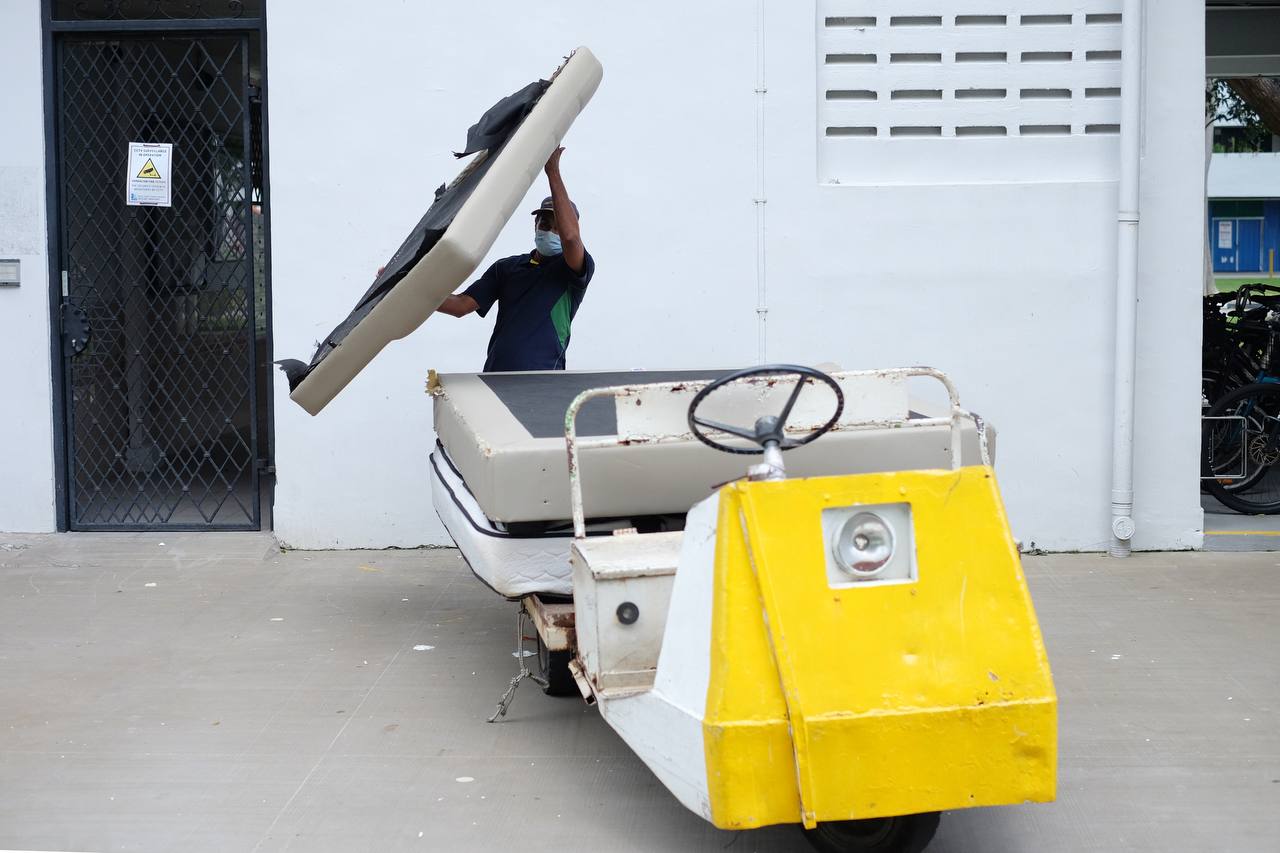
It is clearly a physically demanding job, but he lifts many of these bulky items on his own with skill and ease. Despite being 47, spending most of the day on his feet is something he enjoys, he says, adding that he used to play football. “If sit down too long, my body pain everywhere,” he says with a laugh.
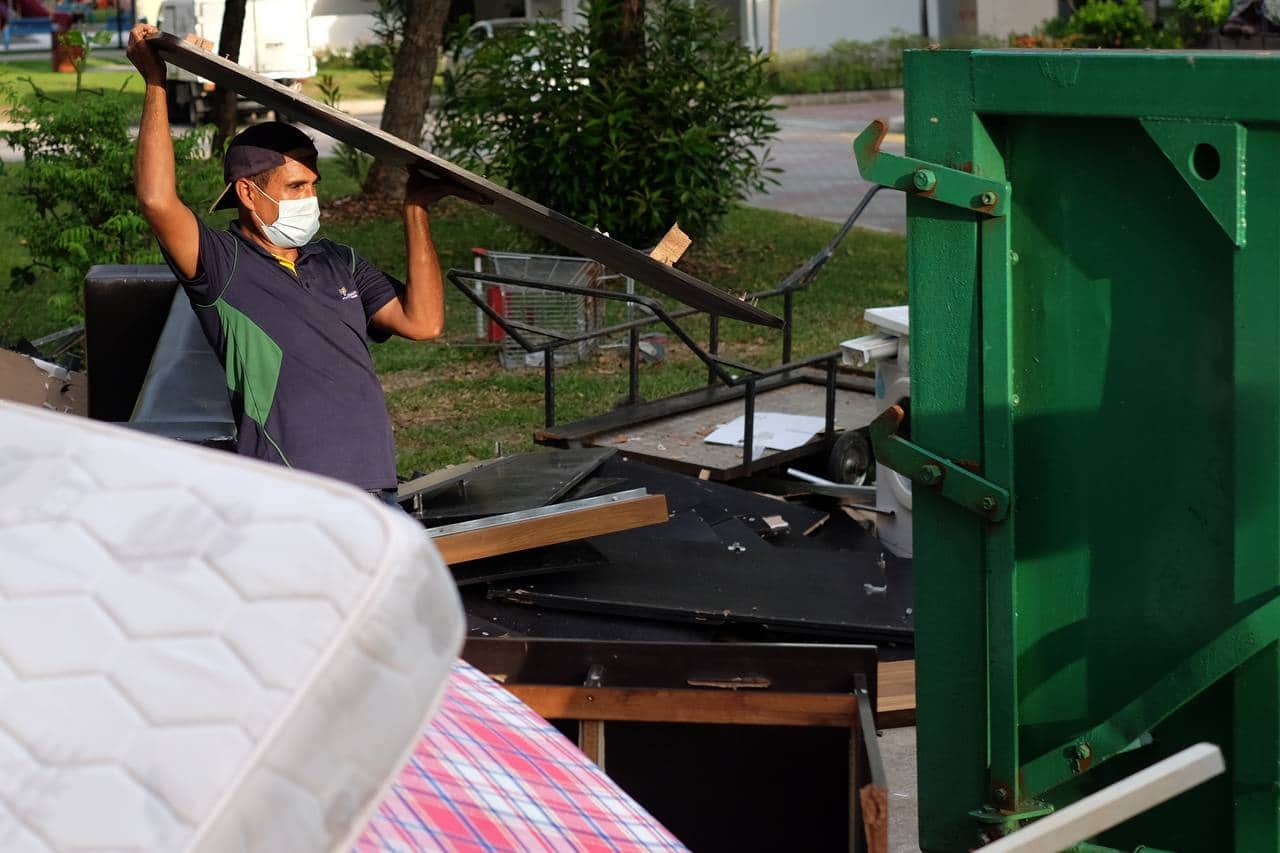
Once the day’s bulky items are consolidated at the bin centre, Ali and his men take apart the furniture using hammers and their body weight, so the items can be disposed of more easily.
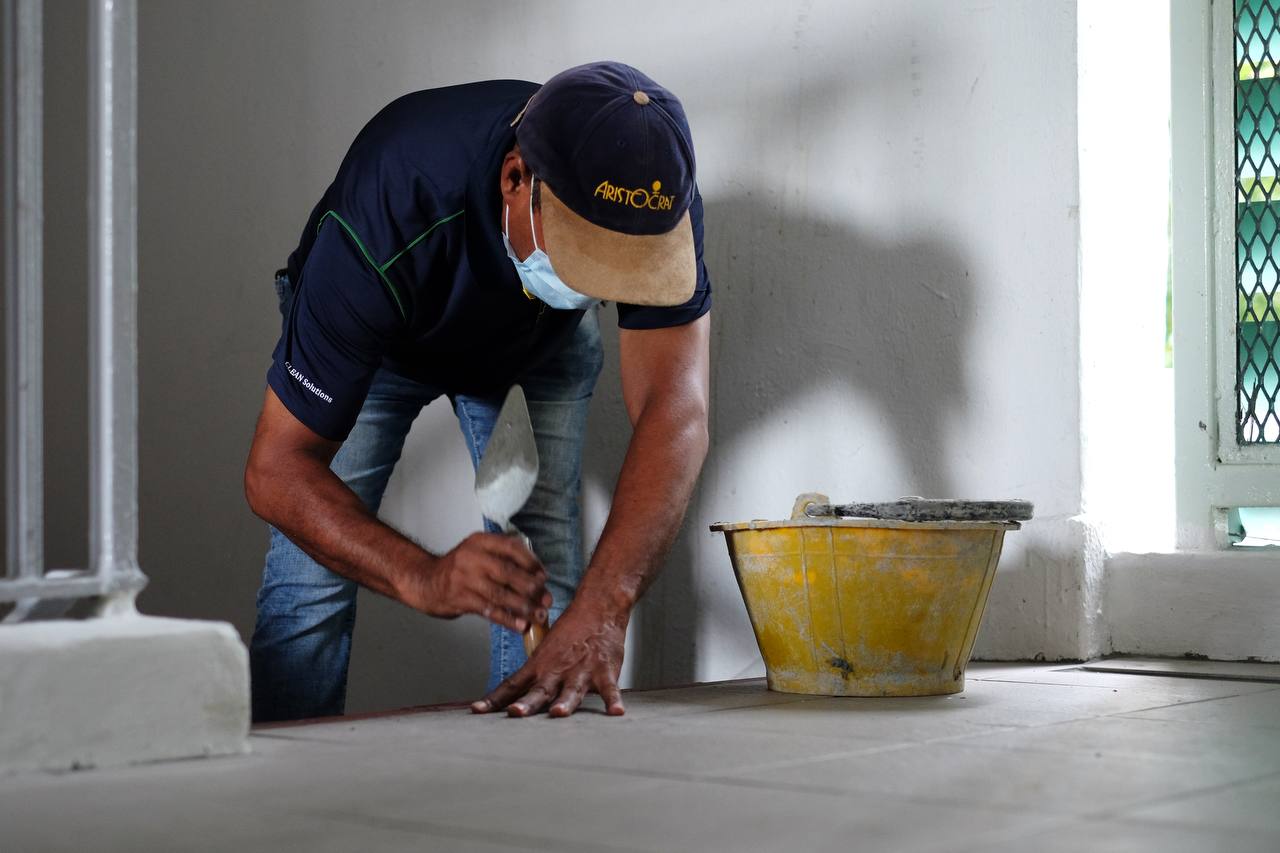
In between moving bulky items, he receives more requests for help and goes to replace a missing tile at one of the staircases. During the day, his phone pings with messages: Power trip at this block. Spilt coffee at another lift. Sometimes he assigns his men to complete the task. Other times he settles it himself. I ask if he finds his work tiring. “Sometimes, but everybody same. Working must tired,” he answers. “If we are working good, the place is clean, then the residents are happy.”
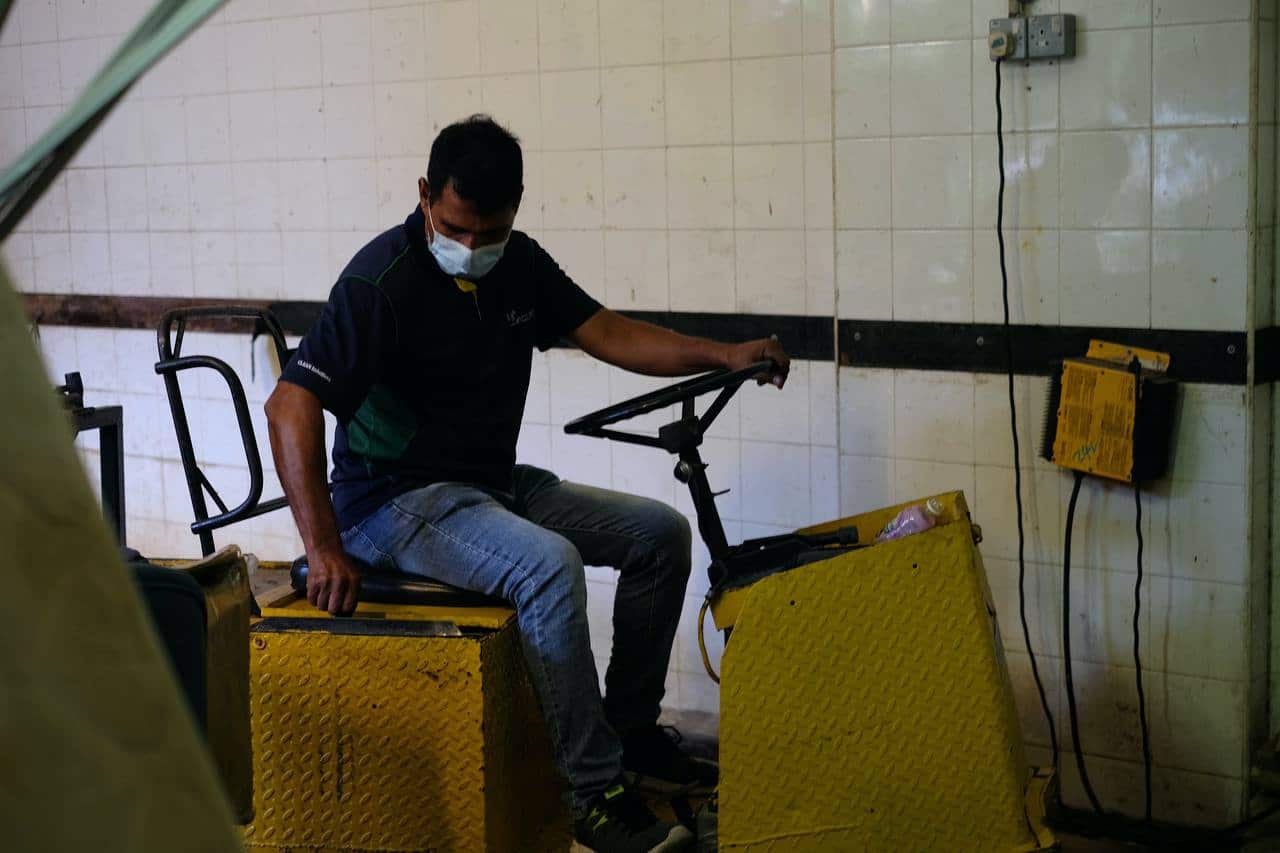
Ali shares that, having worked in this estate for 11 years now, the residents recognise him and are kind to him. Some give him food and drinks when he passes by their homes. Others ask about his family and his children. He adds that he feels happy working here.
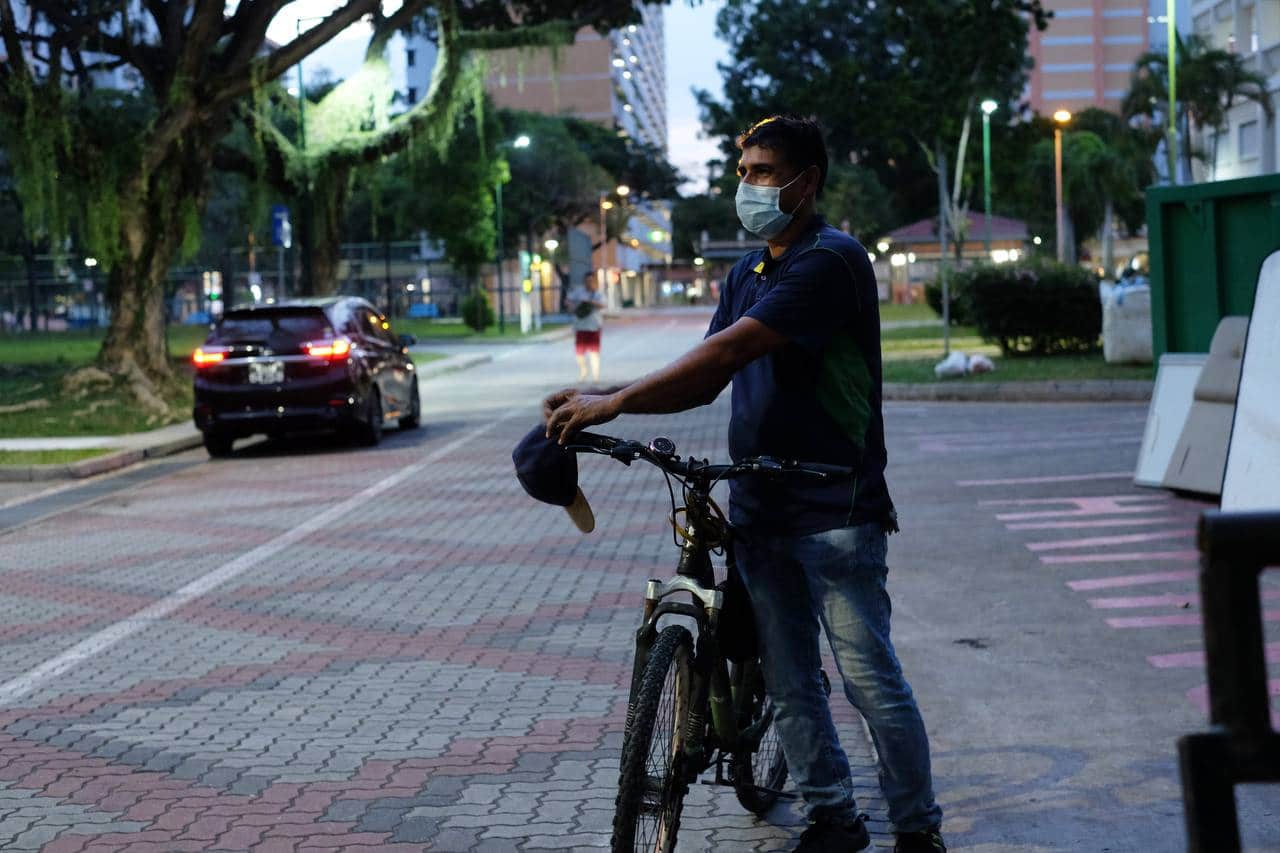
Exhausted from a long day at work, Ali goes on one last round of checks on his bicycle at 7.10pm to make sure that all is in order at the 16 blocks he is in charge of, before finally heading home at 7.40pm. He takes a shower, has dinner, does laundry and calls his family before turning in at 10pm. The next day, his work day begins all over again.
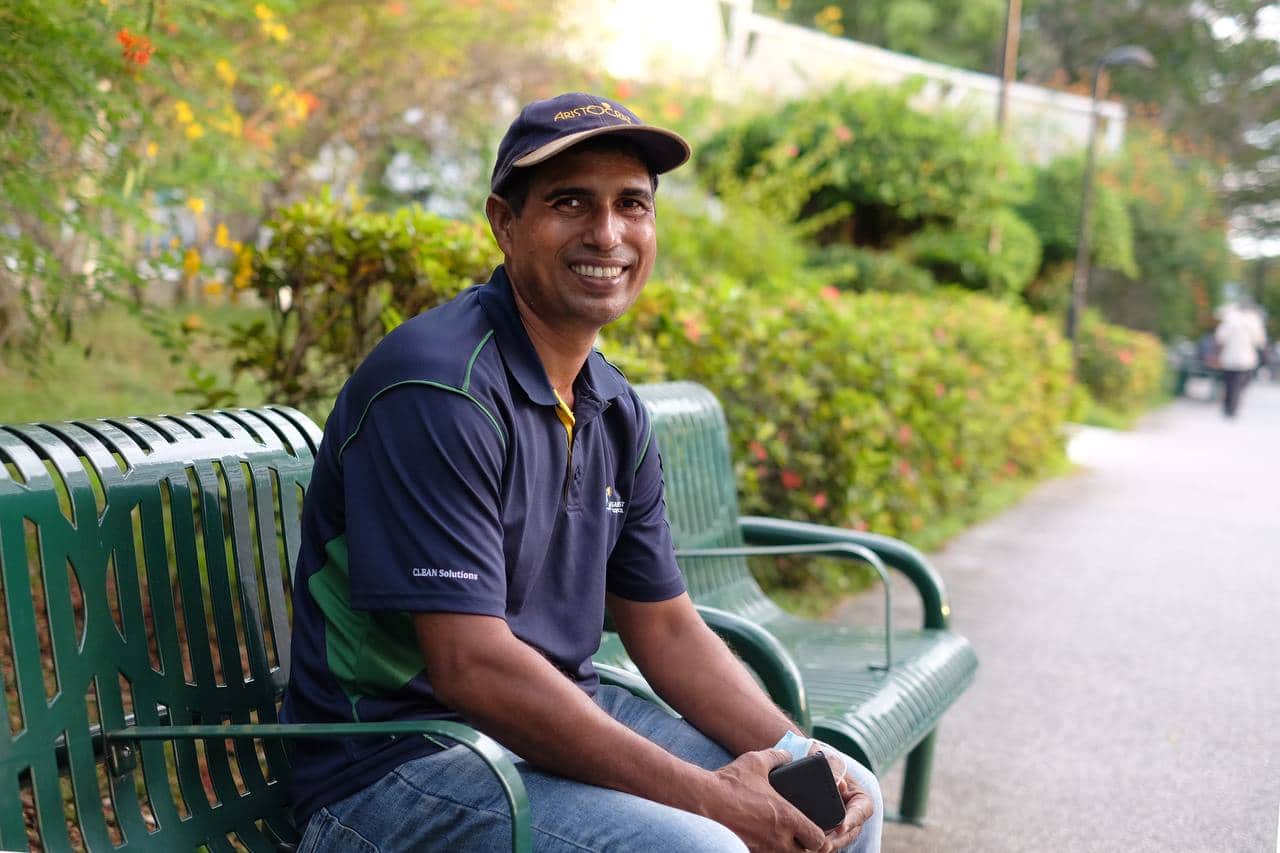
A smiling Ali gamely and good-naturedly let Salt&Light tag along for his shift, giving us a glimpse into the work he has done without complaint for over a decade.
After shadowing Ali for 12 hours and getting to know him better, I was struck by his work ethic and how he takes pride in each task, no matter how small or seemingly insignificant.
I was also struck by his generosity after he insisted on paying for my lunch and going out of his way to get me a bottle of cold water toward the end of his shift.
The next morning, I sent him a text thanking him for letting me tag along, even though it must have been bothersome for him to have to keep answering my questions throughout the day.
I was surprised by his gracious reply, complete with a smiling emoji: “Thank you very much. Really.”
Will you pray for our migrant workers today?
Ali is just one of numerous migrant workers in Singapore who work day in and day out to build Singapore, keep our streets clean and tend to our families. This International Migrants Day, would you take some time to thank God for their lives and pray for their families and well-being?
- Thank God for the migrant workers in Singapore who work behind-the-scenes to keep our nation and families going. If you know a migrant worker by name or by face, thank God for them individually for the hard work they have put in all these years.
- Pray that God will open our eyes to see any opportunities to establish friendships with them and reach out to them in care and concern. Pray that we will, as the Bible commands, treat the foreigners in our midst with kindness and compassion.
- As many of them have not been home in a few years, pray that God will strengthen their relationships with their families back home, and that their spouses and children will continue to thrive despite their absence.
- Pray that they will be kept safe as they work, especially those in more dangerous workplace settings, and that they will be protected from any workplace accidents. Pray that God will also keep both their mind and body strong and healthy.
- Pray for those who are struggling to pay off their debts, that God will provide for them financially and also bring justice to those who are being exploited by unscrupulous employers or agents.
- Pray that they will come to see and experience the love of Jesus.
FOR MORE STORIES ON MIGRANT WORKERS, READ:
We are in this together: Showing love to our foreign workers
We are an independent, non-profit organisation that relies on the generosity of our readers, such as yourself, to continue serving the kingdom. Every dollar donated goes directly back into our editorial coverage.
Would you consider partnering with us in our kingdom work by supporting us financially, either as a one-off donation, or a recurring pledge?
Support Salt&Light
